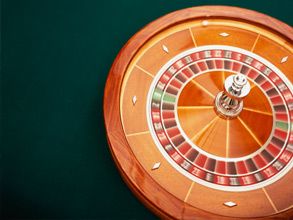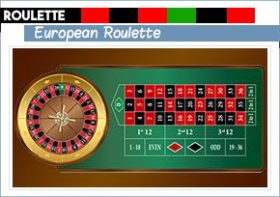Biased Roulette Wheels: Fact or Fiction?

When it comes to gambling, casinos have always been at the forefront of controversy. One popular topic of debate is the existence of biased roulette wheels. Some believe that certain roulette wheels in casinos are intentionally rigged to favor the house, while others argue that this claim is nothing more than a myth. In this article, we will explore the concept of biased roulette wheels and determine whether they are a fact or mere fiction.
Understanding Roulette Wheels
Before delving into the biased roulette wheel debate, it is essential to have a basic understanding of roulette wheels and how they operate. A standard roulette wheel consists of numbered pockets divided into red and black colors, with an additional green pocket for the number zero (or double zero in American roulette). The ball is spun in the opposite direction to the wheel’s rotation, and eventually comes to rest in one of the numbered pockets, determining the winning bet.
Theoretical Fairness
In theory, roulette wheels are designed to be completely unbiased, ensuring a fair and random outcome with each spin. The pockets are carefully placed and precisely balanced to eliminate any systemic biases. This meticulous craftsmanship aims to provide equal chances for each number to win, regardless of previous outcomes or any external factors.
Biased Roulette Wheels
However, despite the theoretical fairness, some claim that biased roulette wheels exist within certain casinos. A biased wheel refers to a roulette wheel, which due to a manufacturing defect or wear and tear over time, causes the ball to favor certain pockets more frequently than others. This deviation from true randomness can potentially be exploited by observant players who carefully track the wheel’s patterns and bet on the biased numbers to gain an edge over the house.
Evidence of Bias
Historically, there have been documented cases of biased roulette wheels. One notable example is the Ritz Roulette Scandal in 2004, where a biased wheel was discovered in London’s famous Ritz Casino. The biased wheel favored a particular set of numbers, resulting in significant losses for the casino. This incident shed light on the possibility of biased wheels and raised concerns within the gambling industry.
Modern Casinos and Regulations
Since the Ritz Roulette Scandal and other similar incidents, modern casinos have taken significant measures to ensure the fairness of their roulette wheels. Rigorous testing and regular maintenance are employed to identify and rectify any biases that may exist. Additionally, strict gambling regulations and oversight organizations have been established to prevent casinos from manipulating game outcomes and protect players’ interests.
Conclusion
While biased roulette wheels may have existed in the past, the gambling industry has made great strides in eliminating such discrepancies. The prevalence of biased roulette wheels in reputable casinos is extremely low, and any potential biases are swiftly addressed to maintain a fair gaming environment. It is crucial to remember that roulette, like any other casino game, is based on chance, and no strategy or biased wheel can guarantee consistent winnings. So, the next time you place your bets on the roulette wheel, you can have confidence in its fairness and enjoy the thrill of the game.

